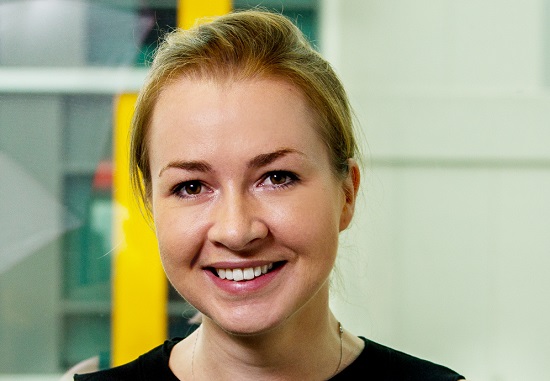It’s about fitting into different markets, according to foodpanda
By Benjamin Cher July 5, 2016
- Malaysia more price-conscious, great growth opportunity
- It’s about corporates in Indonesia and Singapore

FOOD delivery startup foodpanda claims that it is on the path to profitability in its South-East Asian markets, and a key driver for that have been its localisation efforts for the different markets in the region.
For example, in Singapore, its corporate product is a key pillar of its strategy there, according to foodpanda Singapore managing director Emma Heap (pic above).
READ ALSO: foodpanda says it’s on the path to profitability in SEA
“We did market research and found that 55% of employees in Singapore ate lunch at their desks,” she told Digital News Asia (DNA) in Singapore recently.
“If you give them a convenient way to order either for themselves or for team lunches or office events, they will be open to it.
“Most key banks, law firms, trading houses, and e-commerce companies have signed up to use the product,” she added.
Indeed, Jakob Angele, foodpanda senior vice president and Singapore chief executive officer, said, “We are confident that in one-and-a-half-years, 50% of our orders will be from corporates.”
The company also introduced a flat delivery fee of S$3 (US$2.23) in the city-state.
“We were able to do [that] as a result of increasing operational efficiency, and were able to pass the cost-savings back to the customer directly, which is part of our customer-first strategy,” said Heap.
“We also moved our minimum order value down to S$15 (US$11) from S$25 (US18) because we recognised that people want to order for themselves, and S$15 is a reasonable amount to order for one person,” she added.
This is part of the overall strategy in Singapore according to Angele. “We could be profitable now, but we chose to pass the benefits to the customer and invest in marketing and getting our brand out there,” he said.
Meanwhile, 50% of Singaporeans have ordered food online, but only a small share of them order more than once a week, claimed Heap.
“You have a market of six million people, which means you have three million people who have not ordered online,” she said, with Angele adding, “Our target is to move our customers to order two to three times a week.”
Cost-conscious Malaysia
In Malaysia, the challenge of operating in a price-conscious market led to a “breakthrough in increasing delivery efficiency” which allowed the company to reduce its fees, according to Angele.
“We really see new customers interested in the product, but also existing ones who order more, and more frequently,” he added.
When it comes to Malaysia, foodpanda is very strong in the city of Kuala Lumpur.
“But increasingly, we are expanding outside to Georgetown in Penang, Johor Baru and other cities,” said Angele.
“We see tremendous [opportunity for] growth, and are in the process of moving aggressively across the whole country,” he added.
Corporate-first Indonesia
 As for Indonesia, foodpanda is seeing traction not with its usual food delivery services to the home, but with corporates, according to Angele (pic).
As for Indonesia, foodpanda is seeing traction not with its usual food delivery services to the home, but with corporates, according to Angele (pic).
“So there, we are building a network of loyal companies which order from us every day,” he said, however noting also that it offers its corporate products in others markets like Malaysia and Singapore as well.
The corporate product is geared around technology and executive features for businesses – including convenient ways to make big catering orders, and options to order in for bigger groups.
“What’s successful in Indonesia is food programmes,” said Angele.
“For example, if you want to give food allowances to your employees who work after 7pm, or every day during lunch, it can be reflected on our platform, and everything happens automatically.
“It is a well-rounded, convenient solution for corporates, which really helped us to access the profitable corporate market in Indonesia,” he added.
Related Stories:
Foodpanda out to ‘save’ Singapore’s F&B industry
Boosted by CIP 500 grant, Offpeak expands to new markets
Jakarta’s Berry Kitchen raises US$1.25mil in Series A
For more technology news and the latest updates, follow us on Twitter, LinkedIn or Like us on Facebook.


